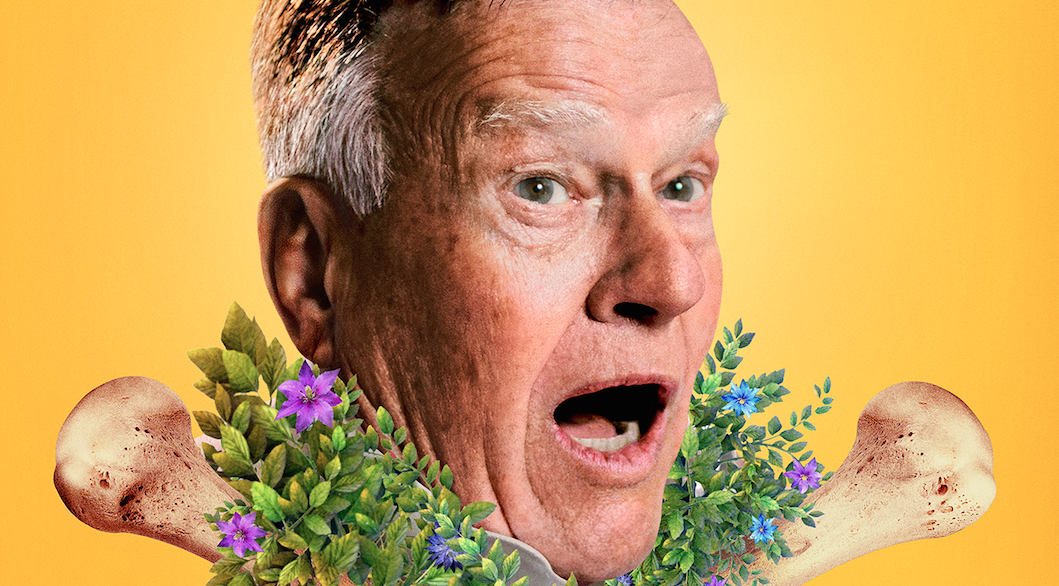
Oscar season has passed, the pandemic may be nearing an end, and Summer is just around the corner. It seems like a good time to reflect back on some of the top funerary films that have come our way at Digital Dying.
Some of these films are new, and some are just newly mentioned and buzzed about. But they all broke ground in their own way. Below is a brief movie guide for the funerary film genre.
Getting Grace – The 2018 film is about a teenage girl dying of cancer who crashes a funeral home to find out what will happen to her after she dies. While this sounds rather somber, it is not. Grace, according to the review site Dove, “is ironically full of life. She spends much of the film bouncing across the screen, cracking jokes, and defying those she encounters to live life to the fullest.” Dove is a site that reviews films based on “Christian values” and “God-glorifying storytelling,” and the film seems to have done well in this community. It is featured on the site Christian Cinema as well as other Christian film review sites.
But Getting Grace has been popular across the board. A review by a retired professor of film and literature on the site Creative Loafing embraces the realism and humanity of the film. “No CGI, no space travel, no aquatic cross-species kissy-face, nothing blowing up, no steroided super-heroes,” writes the reviewer. “Just good, old-fashioned love, suffering, and redemption in a neat two-hour package.” The film played at the National Funeral Directors Association conference in Las Vegas in 2018. Digital Dying was originally recommended the film by the Louisiana funeral director and mortician Courtney Baloney, whom we featured in a set of in-depth interviews earlier this year.
“The movie is so touching because it does talk about the funeral profession and is one of the few that actually depicts funeral directors in a positive light, versus the dead spooky director who is actually taking people’s body parts and selling them,” said Courtney. The big take away, he said, was “seeing how someone can face their fears even in the midst of dying.”
It is this aspect of the film that makes it unique. Digital Dying has closely analyzed scenes of death in the film and television world and revealed that typically, there are no funerals, no remorse, no ceremony, often just a violent act, and then the film moves on to another death. Yet Getting Grace structures the entire film around the ceremony of goodbye. “The filmmakers are wise to take the viewer through Grace’s dying moments, up to her last words,” says Dove, “making this film both an emotional and enlightening journey that portrays death as dignified and bittersweet.”
Death of Stalin – This 2017 film begins in 1953 with Joseph Stalin, played by British actor Adrian McLoughlin, listening to a recital of Mozart’s Piano Concerto No. 23 on Radio Moscow at his country home. Shortly thereafter, Stalin reads an illicit note, suffers a cerebral hemorrhage, and becomes paralyzed. “When tyrannical dictator Joseph Stalin drops dead, his parasitic cronies square off in a frantic power struggle to be the next Soviet leader,” states IFC Films. “Combining palace intrigue with rapid-fire farce, this audacious comedy is a bitingly funny takedown of bureaucratic dysfunction performed to the hilt by a sparkling ensemble cast.” Steve Buscemi plays Nikita Khrushchev, the Soviet leader who in real life would famously meet with US President John F. Kennedy in 1961. Jeffrey Tambor plays Soviet politician Georgy Malenkov. The English stage actor Simon Russell Beale plays secret police chief Lavrentiy Beria, who was responsible for organizing purges that killed many tens of thousands of people.
While some students of history may turn their noses at how such tragedy and violence has been transformed into comedy, the film is self-admittedly a dark comedy. It also spends a great deal of time discussing some of the very real-life problems that arise in the face of an unexpected death. How exactly does one arrange a funeral for a person whose personality was so great as to make the act of organizing anything for them unthinkable? How does one celebrate the life of a person who may actually have been a terror? And how do a diverse and endlessly bickering array of friends, business associates, and family come together in the time of death to put on a memorable funeral without a hitch?
Rotten Tomatoes rates Death of Stalin at 95 percent, which is pretty high. IMDB has the film at 7.2 stars out of 10. The Director is Armando Iannucci, from the popular HBO series Veep and the 2009 British satirical black comedy In the Loop. The film received critical acclaim at the 2017 Toronto International Film Festival. It is a British-French-Belgian co-production and received two British Academy Film Award nominations as well as 13 British Independent Film Award nominations. According to Wikipedia, Death of Stalin was banned in Russia and Kyrgyzstan for allegedly mocking the countries’ past and making fun of its leaders.
Dick Johnson is Dead – The director Kristen Johnson directed an innovating and moving 2016 documentary called Cameraperson on the pain, art, and beauty of being a documentary filmmaker in a complicated and troublesome world. So it may be no surprise that she chose an introspective angle to explore the topic of death. The film focuses on Kristen’s father, Dick Johnson, who may or may not actually be dying. It did well on the indie film circuit and was rated one of the best documentaries of 2020 by IndieWire. “Kirsten Johnson enacts a touching and funny meditation on embracing life and fearing death at the same time,” says the IndieWire review. “Oscillating from intimate father-daughter exchanges to surreal meta-fictional tangents.”
Given that the film structures itself around an examination of mortality, it is not so different from Getting Grace, and yet it could not be more different from Grace. Dick dies getting hit on the head by a falling air conditioner, by a car, by having blood spurt from his neck.
“What’s going on here?” writes Matt Zoller Seitz, editor at large of RogerEbert.com. “A lot of things. If one were to look at this film as a psychologist might—and why not, since Dick Johnson is a psychologist?—one might see the death scenes as a means of exercising control over an uncontrollable eventuality (Kirsten gives her father visually ravishing demises, befitting a hero of song and legend, and many ordinary ones). One might also interpret the death scenes as a roundabout, self-deprecating way of admitting that neither father no daughter can control Dick Johnson’s death, or any death, except in small ways.”
Essentially, it is a pretty complicated documentary, and it touches on death and dying, ceremony, and love of life. “Maybe ‘Dick Johnson is Dead’ is the filmmaking equivalent of the band on the deck of the Titanic playing their hearts out while the water rises…When the end is preordained, you might as well make music,” writes Seitz.
The Farewell – The 2019 film is written and directed by Lulu Wang and follows a Chinese-American family who, upon learning their grandmother has only a short time left to live, decide not to tell her and schedule a family gathering before she dies. At the 77th Golden Globe Awards, the film was nominated for two awards, including Best Foreign Language Film. The movie stands out as a commentary on the changing ceremony of death in a changing culture in a changing, increasingly interconnected yet distinctly isolating global world. It was released in the United States by the independent entertainment company A24 and stars the American actress, comedian, and internet personality Awkwafina as the Chinese-born, U.S.-raised Billi. She reluctantly returns to Changchun to find that, although the whole family knows their beloved matriarch, Nai-Nai, has been given mere weeks to live, everyone has decided not to tell Nai Nai herself.
“As Billi navigates a minefield of family expectations and proprieties, she finds there’s a lot to celebrate,” says A24. “A chance to rediscover the country she left as a child, her grandmother’s wondrous spirit, and the ties that keep on binding even when so much goes unspoken.” The film is based on the actual experience of director Lulu Wang. In an interview, the popular NPR host Terry Gross explains, “While Wang was trying to get this film made, after getting rejected by producers in the U.S. and China, she told the story in the form of a personal essay on This American Life. That broadcast led producers who were interested in her story to reach out and help her make the film.” The Farewell received a 97 percent rating on Rotten Tomatoes and has 7.6 stars on IMDB, which is pretty impressive.
Some of the stellar funerary-related films from Digital Dying’s past are also worth mentioning. In 2009, we reviewed the elegant Japanese film Departures, which won the Oscar for Best Foreign Film that year. The film follows Daigo Kobayashi after he loses his job as a cellist with a Tokyo orchestra and returns to the bleak provincial town of his youth where the only work available is as an encoffineer, or nokanshi. That is, the individual who prepares a dead body for viewing. Daigo throws up upon seeing his first corpse but soon learns that preparing a body for the grave contains just as much artistry as any orchestra. As we wrote at the time in our article:
As Daigo takes to his new profession he begins encoffinating everything. Even a sandwich, he daintily prepares and lavishes as if it were a body he was cleansing for the coffin, a habit he realizes his boss has picked up too. “Everything is a corpse,” the elder encoffineer tells Daigo, while savoring a salted piece of puffer roe he has just finished grilling. “The living eat the dead, unless they’re plants.”
Enjoy the nice Spring weather everyone. And try and see some nice funerary films too!









